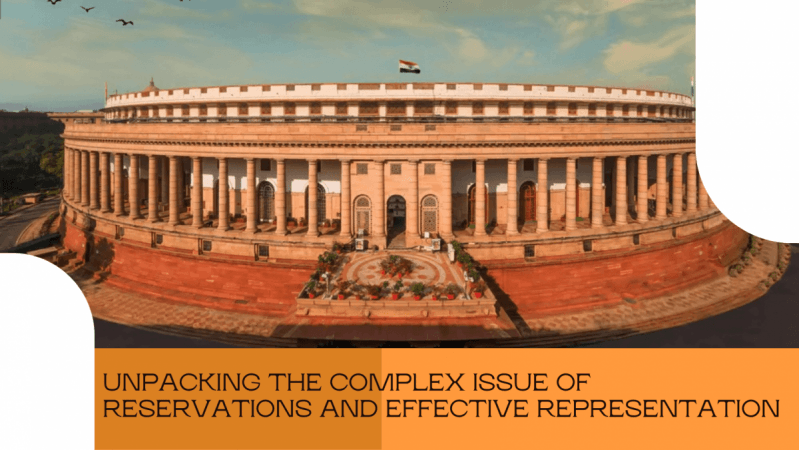The representation question has confronted Indian politics and discourses at various intervals. The constituent assembly debated on the question of representation of disadvantaged groups and religious minorities. This debate yielded to providing for reservation in the Lok Sabha and state legislatures for Scheduled Castes and Scheduled Tribes. In the 1990s, the Mandal Commission report ignited the debate on the representation of OBCs across the country. This wave of OBC consolidation didn't translate to constitutionally mandated reservation, however, political parties internally began to accommodate these numerically strong groups.
The wave of OBC consolidation led to powerful caste and class-based electoral groupings whether it was KHAM, or AHINDA, or M-Y. And unlike others would have you believe, also elected India's first OBC PM in HD Devegowda. Today, the OBC debate has been reignited with the INDIA alliance's call for a Caste Census. Bihar's now released caste census and Rahul Gandhi's push for OBC representation across bureaucracy and parliament, and even in newsrooms, are the latest. Finally, the now-passed Women's Reservation Bill brings to the fore a long pending demand of reservation for women at 1/3rd of all seats in elected legislatures. However, all these questions of reservation rely on the logic that providing reservation will automatically translate to amplification of their voice and take a step in overcoming historical inequalities.

This logic belies the expectation of a democracy where instead of narrow and parochial community or group-based identities, a representative would be able to represent their entire constituency. Indian democracy has relied on amplifying and accentuating the differences rather than the commonalities. While we should have expected women and other disadvantaged groups to find their own space through political parties and elections we have largely failed. Existing political parties provided tokenistic representation on criteria of the community, electoral compulsions, and winnability among others. However, what assures us that a women's reservation bill (whenever actually enforced) will not simply be reduced to a tokenistic gesture? That is the search for effective representation.
Amongst a wave of support across the aisle, only 2 MPs of the AIMIM opposed the women's reservation bill. Asaduddin Owaisi justified this stance by claiming this bill would only further the representation of the advantaged and upper class, further disadvantaging other groups like Muslims, Dalits and OBCs. This justification also tends to the effective representation argument. Cornering of these reserved seats only by socially-economically upward individuals will be a great disservice to the diversity and pluralism of women. Further, how will one ensure their viewpoint as women stands recognised and heard, instead of drowned out in party positions? Will women tend to be restricted from participating in these reserved seats? Will women be accepted as equal stakeholders in future cabinets and standing committees?
These questions can all be answered in due time. However, the case of the SCs and STs if any sheds light on how reservation has been both ineffective and effective in certain metrics. Francisca Jenesuis research on 65 years of the SC/ST reservation concludes that while participation and recognition have improved for them, redistribution of political and economic power hasn't. The core argument is that SCs and STs have received a voice, however, this isn't solely enough to alleviate their socio-economic conditions.
The ongoing debate on reservations and representations, is essential after 75 years of Indian democracy. However, in the interest of effective representation, we must set standards and measure the effectiveness of these steps. Without ensuring women and other disadvantaged groups have an equal and effective voice, sans political pressures and whips is vital. A few solutions we can consider include relaxing the conditions of party whips by which individual representatives can make decisions for their groups and constituents without political compulsions. Or whether a proportionate representation system will allow for stronger participation of minority voices. Rather than politically divisive issues such as the validity of the constitution post 75 years, these are the discussions we must engage in.
A mature democracy like ours, which prides itself as the "mother of democracy", must lead the way in presenting an effective and robust representative model of democracy.
[This is an authored article by M Amaan Asim, a graduate of Ashoka University and a strategic consultant on Indian policy and politics. Views expressed are author's own.]

















